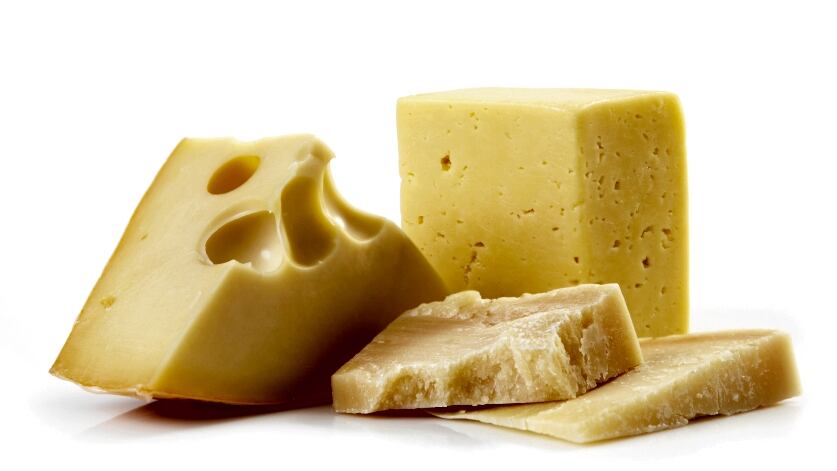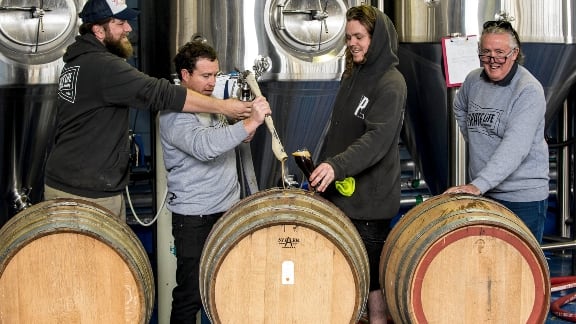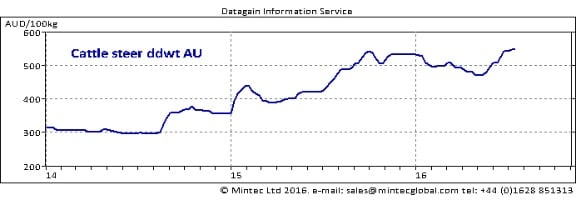Fsanz chief executive Steve McCutcheon said a proposal to do so had been prepared after a request from the Australia and New Zealand Ministerial Forum on Food Regulation.
“Based on previous work done in assessing applications for permitting the sale of food derived from low-THC hemp, Fsanz considers [such] foods to be safe for human consumption.
“Moreover, they may provide a useful alternative dietary source of nutrients and polyunsaturated fatty acids, particularly omega-3 fatty acids.”
The ministerial forum asked Fsanz to consider a number of additional matters as part of the proposal, including the need to set a limit on cannabidiol, the main nutraceutical compound in the plant.
It also called for policy advice on restricting the marketing and advertising of low-THC hemp as a food.
The regulator has responded to these matters in a paper outlining its call for submissions, McCutcheon said, and asked for government agencies, public health professionals, the food and nutraceuticals industry and the community to respond with their comments by August 25.
Fsanz has for years shown itself open to the idea of permitting hemp to be sold as a food in Australia and New Zealand, whereas the ministerial forum has consistently knocked back the pro-hemp lobby.
In 2010, when it considered application A1039, the second application to allow hemp foods in Australia following an original 1998 application, the forum asked Fsanz to comment on the application, following which the antipodean food regulator voiced its support.
Two years later, the forum again debated the application, and asked Fsanz to investigate the matter a second time. This it did, and reaffirmed its support for allowing hemp as a food.
In January last year, while acknowledging Fsanz’s advice that “TDI of 6 μg [tetrahydrocannabinol] per kg [body weight is] valid and that the maximum limits for THC content of hemp foods are appropriate”, the forum took the application off the table, though it still left the door open for another review, this time to look at law enforcement, roadside testing and and marketing concerns—the basis for the latest submission’s paper.
The forum raised two issues in that ruling: if CBD [cannabidiol] levels and marketing would send a confused message to consumers about the safety of cannabis; and how difficult it would be to police the use of hemp foods?
Paul Benhaim, whose company HempFoods is the biggest supplier of hemp in the southern hemisphere, has voiced his hope that the latest call for submissions might be the last after 16 years lobbying the Australian government for such a change.
"Fourth time lucky with Fsanz again recommending our ‘skincare products’ be a good in Australia and New Zealand,” said Benhaim, whose products can only be marketed as non-food items or pet food in his home market.
“Maybe we can start selling the hemp seed, oil and protein products to manufacturers in our country rather than exporting mostly."
More stories from Down Under…
Australian wine and crackers buyers buck gradual decline in cheese sales
Cheese sales may be gradually declining in Australia, but market research suggests that certain consumers remain devoted to local brands.

Almost two-thirds of Australian shoppers bought block cheeses in an average month, while grated cheese and cheese slices were each bought more than one-third. Cheese spreads and cheese snacks or portions were bought by 15% 10% respectively.
Each of these figures is considerably lower than in 2012, said Roy Morgan Research, which carried out the study.
However, in a gradually shrinking market, some consumers are dramatically more likely than the average Australian shopper to buy cheese: wine drinkers and fans of savoury biscuits and crackers.
In the case of block cheese, while 64% of overall grocery shoppers buy this each month, the figure shoots up to 81% for biscuit buyers and 77% for wine shoppers. This pattern is consistent across all cheese categories.
Among these three groups, there appears to be no brand preferences when it comes to block cheese buyers, with the same five brands favoured in exactly the same order of popularity: supermarket brand, Bega, Coon, Mainland and Mersey Valley.
“It’s important for cheese brands to understand which grocery buyers are the most likely to buy it, and make sure they are targeting these consumers effectively,” said Angela Smith of Roy Morgan Research.
“Cheese is famous for its compatibility with wine, as well as being a fine match with savoury biscuits/crackers, and the latest Roy Morgan data certainly bears this out. People who buy wine, and those who buy crackers, are indeed more likely to purchase cheese than the average grocery-buyer.”
Craft brewery launches beers aged in Barossa Valley wine barrels
A series of craft beers aged in barrels from the Barossa Valley will be launched by Pirate Life Brewing this month.

The South Australian brewer has teamed up with the grape region’s Tomfoolery Wines for the series, which will include a black ale aged in tempranillo barrels, a saison in grenache and a stout in shiraz barrels.
Pirate Life chief executive Mick Cameron said the bottle-aged project was a sizeable shift from the brewery’s flagship West Coast Pale Ale and IPAs packaged in cans.
“This is not a hop driven product, it’s more about flavour and it works well in bottles,” he said.
“You get mouthfuls of the beautiful ripe plums as well as a little bit of the hops and a little bit of the beer so it’s a very interesting beer to drink because there’s so much going on.”
The small-batch beers in 500ml bottles will first be launched with the release of the black ale. The saison is expected to be available from October while the stout will get its release next March.
“The boys did a lot of barrel-aged work at Brew Dog with whisky barrels so it’s something we’ve been playing around with because you never know what the result is going to be,” Cameron said.
“After a beer’s been ageing in a barrel you’re not sure what elements it’s going to pick up from the barrel and you don’t know how the beer’s going to react after sitting for four or five months.”
Founded by brewers Red Proudfoot and Jack Cameron, Mick’s son, who worked together at Brew Dog in Scotland, Pirate Life was launched in Adelaide in March with about 17,000 litres of packaged beer.
It has quickly grown from 3 staff to more than 20 and aims to produce 1.2 million litres in 2016/17.
It will also this month begin managing its own distribution across Australia.
Market update: Cattle prices at a six-year high following drought
July has seen Australian cattle prices increase 29% year on year to reach a six-year high, driven by tight cattle supplies.
According to Mintec, the commodities analyst, Australian beef production has been falling due to drought conditions in the 2014/15 season. Unable to afford feed costs, this water shortage caused farmers to slaughter cattle earlier in 2015, thus reducing the herds.

As a result, Australian cattle herd numbers have fallen to a 20-year low this year, to an estimated 26m head. Furthermore, cattle slaughtering was down 16% year on year at 7.6m head caused by low cattle herd numbers.
Australia’s cattle herd is in the rebuilding stage as farmers look to replace the cattle which have previously been slaughtered. Despite falling numbers in 2016, the cattle herd is expected to start recovering from the 2017 season.
